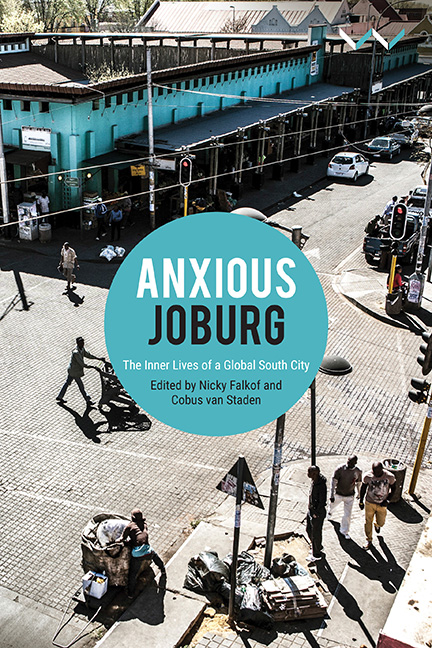Book contents
11 - Everyday Urbanisms of Fear in Johannesburg’s Periphery: The Case of Sol Plaatje Settlement
Published online by Cambridge University Press: 16 June 2021
Summary
One night in 2017 I visited relatives in Bramfischerville, on the western edge of Sol Plaatje, an economically depressed quasi-formal settlement located between Roodepoort and Soweto on the outskirts of Johannesburg. I stayed until late at night and, on leaving, my cousin's instructions were as follows:
Here in Bramfischerville phase two, we do not have criminals anymore, it is safe, you can walk at night without any problems. The criminals that were troubling us were necklaced by the residents last year and since then we do not have issues of crime, the criminals are afraid. However, on your way, avoid Durban Deep [Sol Plaatje], it is not safe, that is where all the criminals are. They will hijack and rob you or, even worse, they may kill you. Rather, go through Bramfischerville phase one and drive straight to Main Reef Road and you‘ll be on your way to Johannesburg.
The instruction from my cousin is still vivid in my mind as I remember his demeanour and the concern in his eyes. It is a fear that the residents of Sol Plaatje live with. While my cousin and I live outside the area and can take steps to avoid passing through Sol Plaatje at night, those who live in the settlement do not have an alternative: this space is home to them and their children.
There have been numerous studies conducted in Sol Plaatje since its inception in the late 1990s. These have focused on a range of issues, including HIV prevalence, how people living with HIV cope with their everyday realities, and the treatment regimens that they adopt (see, for example, Decoteau 2008; Carrasco, Vearey, and Drimie 2011). Others have focused on the interlinked livelihood systems of internal migrants from rural parts of South Africa and how they remain connected with their areas of origin while setting roots in the urban environment (see, for instance, Carrasco, Vearey, and Drimie 2011; Vearey et al. 2010). In their work on urban health in Johannesburg, Joanna Vearey et al. (2010) use the example of Sol Plaatje to argue that place (physical location) is central to understanding intra-urban inequalities in the context of migration and HIV. They compare the living conditions of Sol Plaatje, which they describe as peripheral, and those of the inner city of Johannesburg, which they describe as centrally located in relation to service provision.
- Type
- Chapter
- Information
- Anxious JoburgThe Inner Lives of a Global South City, pp. 226 - 240Publisher: Wits University PressPrint publication year: 2020



